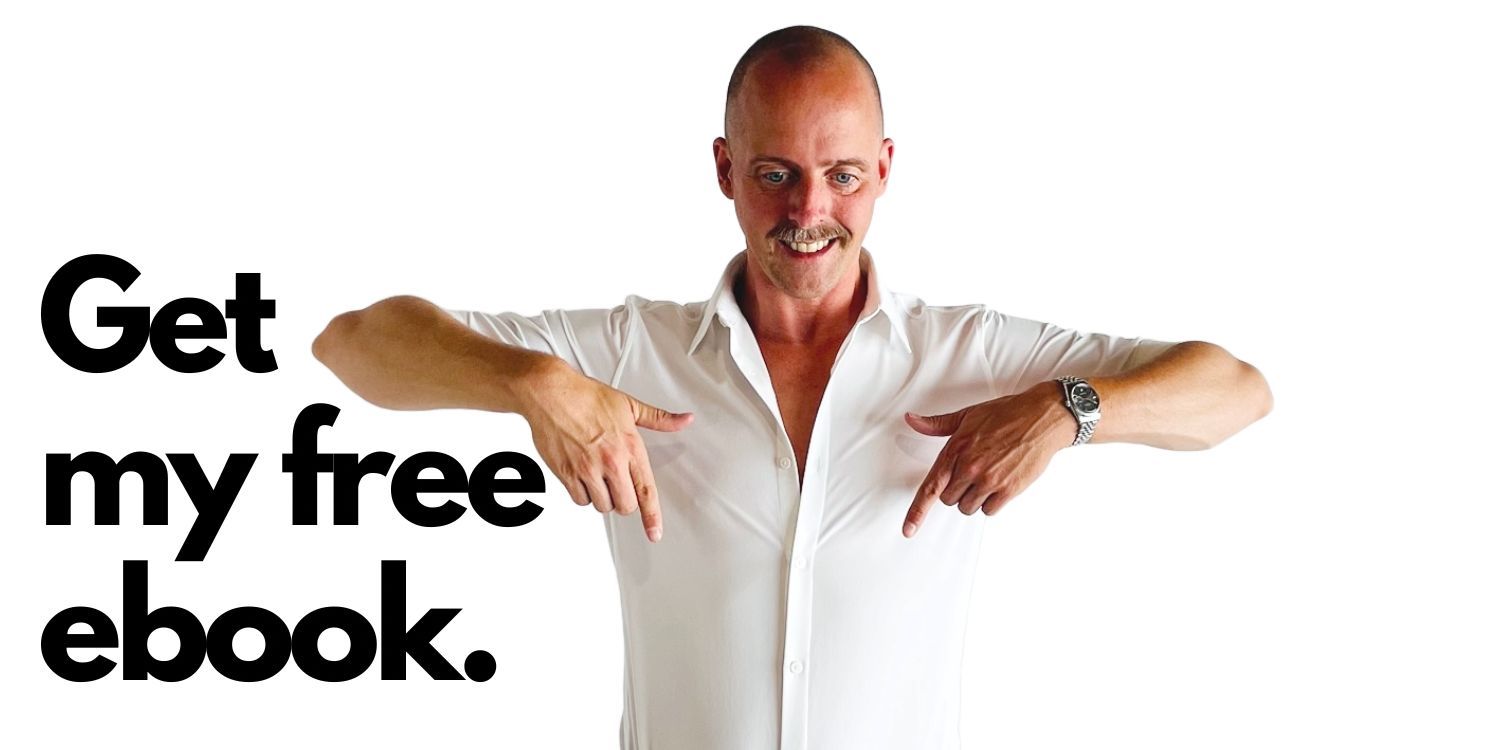How to heal from a painful relationship?
Jul 11
/
Rene Luisman
The intense feeling of sadness, anger, or defeat when a relationship ends. As if the ground has been knocked away from under your feet and you are left empty-handed. You wonder how to proceed. And if there will ever come a time when you dare to entrust your heart to another guy.
How do you process a previous relationship in such a way that it does not stand in the way of a new love?
‘There’s no version of love that doesn’t come with the risk of heartbreak.’ - Jillian Turecki
In my practice, I regularly talk with men about sadness and the disappointment that a breakup can bring. In these conversations, I often see two opposing movements of how men deal with loss. Dwelling on what has been or ignoring the loss. Mostly because we haven't learned to deal with loss or because we don't want to feel what is really there. But both movements hinder your emotional development and stand in the way of a healthy new relationship.
Strategy 1 - Dwell on what has been
This movement is focused on the past. You cling to what has been and do everything you can to keep it or reclaim it. Instead of accepting that it's over and that you have to move on, you keep focusing your attention and energy on your ex-partner. You still regularly check his profile, read his messages over and over and look for signs of his love for you or where you could have seen the breakup coming. And even though you carefully meet other men, your heart is still partly with your ex, so the other person will never get you completely.
Strategy 2 - Disregarding your feeling
Another common strategy is to try to take the fast lane. Instead of mourning, you rather burn all the ships behind you and plunge into new adventures. Being alone is not for you and then there is the fear that you will remain alone. So you immediately throw yourself back into the nightlife, spend hours scrolling through dating apps or look for other ways to meet new men. In doing so, you go beyond the loss of the one you have attached yourself to for the past few months or years. And you also deny yourself the opportunity to see what this relationship has meant to you and what you have learned from it.

It's only a matter of time before deep wounds start to stink
A broken relationship can leave you feeling hurt. That your trust in others or in yourself has been damaged. That you feel anger, fear or frustration. Feelings that can be so intense that you become bitter or afraid to admit them. Because they are overwhelming or you don't know if and how you can control them.
But if the wound from a previous relationship hasn't healed enough, chances are it will contaminate your next relationship. You unconsciously take your mistrust, anger or bitterness with you as ballast in a new relationship. By doing so, you are doing yourself and, above all, the other person a shortfall. It takes inner work to grieve, to give meaning and to be able to open yourself up to a new partner from restored confidence.
Besides time, healing mainly requires mourning and reflection
Time heals all wounds, that's what they say. Painful experiences will in time be replaced by new memories. But more is needed for a complete and healthy healing. Grief is about accepting and facing what is now. That this relationship is over and with it possibly all the dreams and goals you had together.
The grieving process is different for everyone. There is no fixed time period or structure for it, but what is the same for everyone is that it is about allowing yourself to feel what is there. To allow yourself to let all disappointment, relief, anger or sadness be there and not have to be hidden behind a mask of indifference.
Why you do want to reflect
In addition to mourning, healing also requires self-reflection. To look inside and reflect on what the other person and the relationship have meant to you. Often we choose our partners partly based on what we know. Behavior or patterns that we recognize from our family of origin. Sometimes you just get caught up in old, ineffective patterns. Think of a relationship based on distrust, lies or insecurity. A relationship in which the balance between give and take is disturbed or in which you don't feel yourself. The only way to break this pattern and avoid it in the next relationship is to take the time for introspection.
Self-reflection helps you to look at yourself, the other and the dynamics with some distance so that you can learn from this. Not to beat yourself up about what you didn't do right. But with a mild look at yourself and the other. What were the beautiful, valuable moments? Which moments touched you? What have you learned is this relationship? How has this relationship contributed to your personal development? And what do you take away from this for the future?
By taking time to heal, you also give yourself time to grow. So that the intensity of the pain or sadness (or whatever it is) can decrease. And so that you can give the best of yourself in the next relationship.
Five ways to go through the healing process:
-
Write a letter to your ex or to yourself. Describe what the relationship has meant to you. You don't have to send the letter, it's about the process of expressing how you look back on the good and less good moments in the relationship.
-
Think about your role as a partner. What qualities that you have deployed in this relationship are you proud of. What would you like to do differently next time? What does this mean for how you proceed?
-
Talk about it with people around you. Please indicate what you need. A listening ear, someone to hold you, a mild look because you are especially strict with yourself, or something else.
-
Sometimes you still have questions or things you want to give back to the other person. Something that is necessary to close the relationship. Then it may be useful to meet one last time. Prepare for the conversation and set two intentions for yourself. One for what you hope to get out of the conversation and a second for the highest achievable if the first intention fails.
-
If you can't figure it out yourself, you can also seek professional help for this. In a free 30-minute consultation we can explore where you get stuck and what I can do for you.
You read an article by Gay Men Coaching
How I can support you:
- Self Love Course - Learn step by step how to build a positive self image.
- Men's Group - Find out how other gay men deal with issues such as intimacy and sexuality.
- Coming-out program - If you could use some support before, during or after your coming-out.
- Individual coaching - If you want to improve the relationship with yourself or others.
And more about me and my approach:
Follow me on:
Latest from our blog

Get in touch
-
Geestbrugkade 32, 2281 CX Rijswijk, Netherlands
-
contact@reneluisman.nl
-
Chamber of Commerce number: 59693908
-
IBAN: NL49 KNAB 0259 9752 22
Join Our Newsletter
Get monthly updates on news, articles, tips and more.
Thank you!
Gay Men Coaching © 2014 - 2025

with 5 powerful tools to feel confident
As a bonus you will receive a monthly e-mail with tips & inspiration. You can easily unsubscribe at the bottom of every newsletter.
